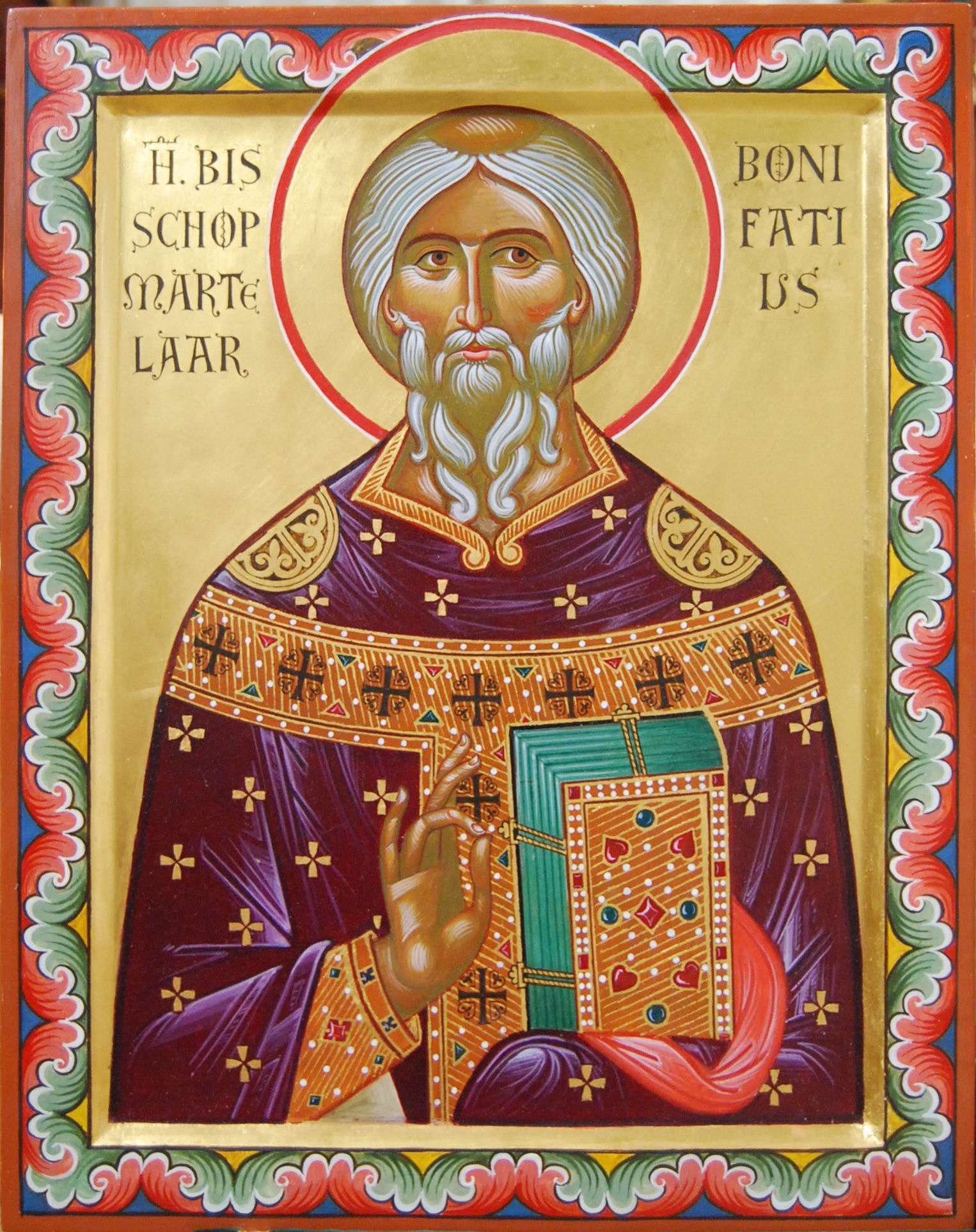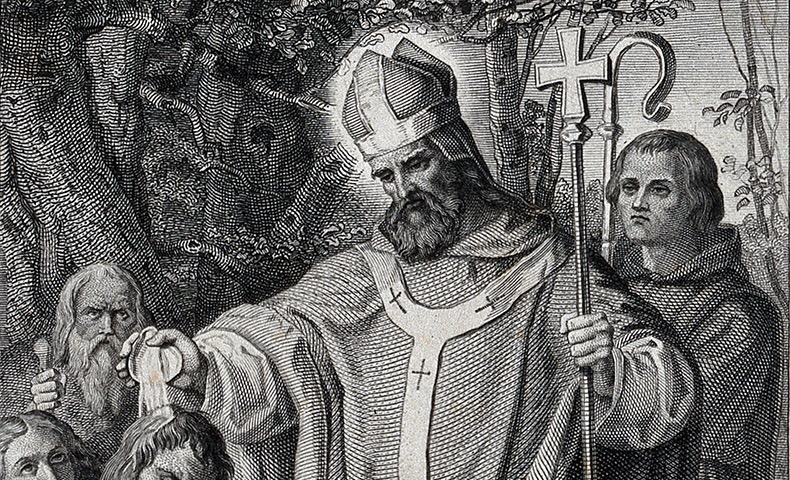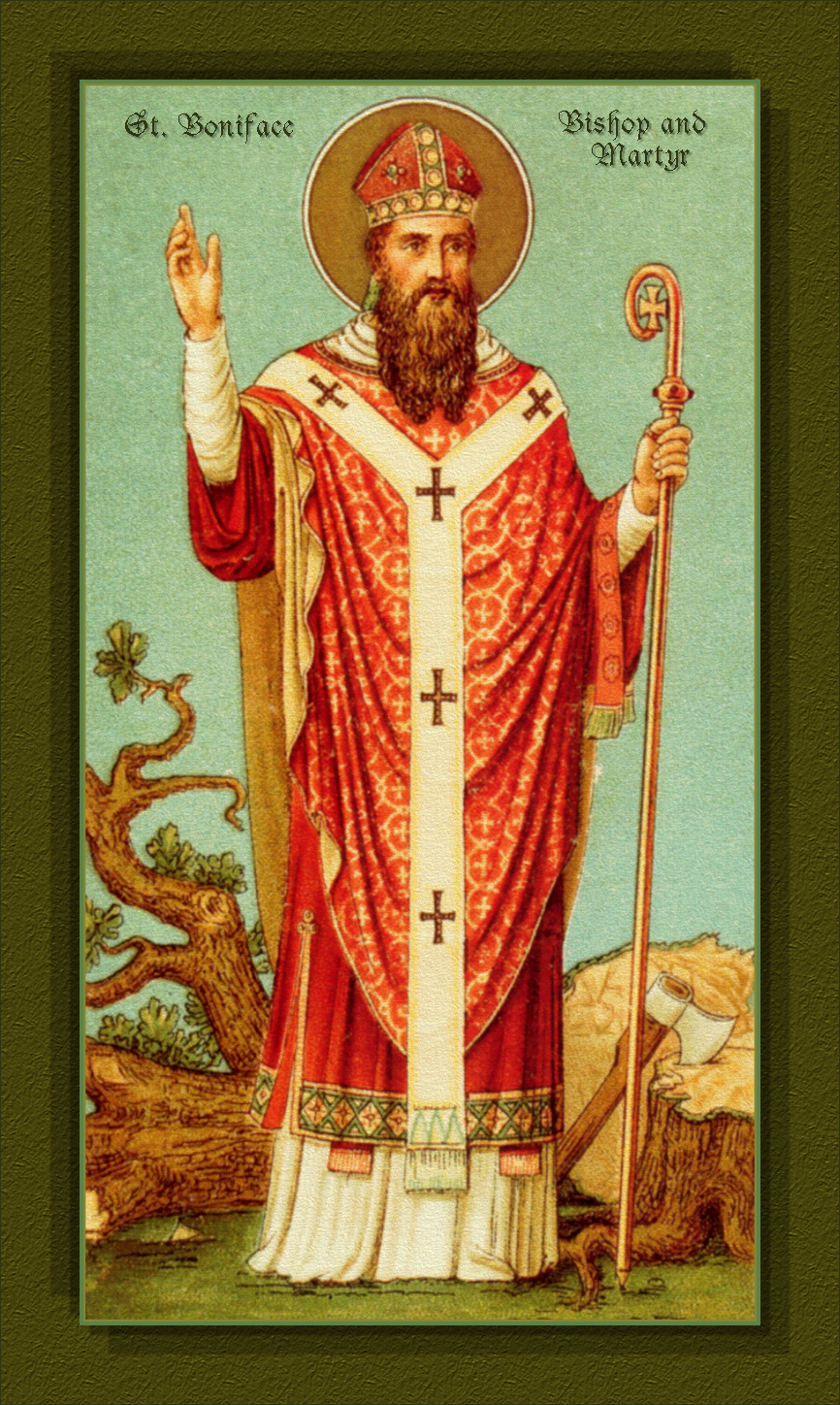Saint Boniface was sent by Pope Saint Gregory II to reform the Church in Germany, which had been heavily negatively influenced by the forces of paganism. He sought to restore the fidelity of the German clergy to their bishops, in union with Rome. He also sought to build up houses of prayer throughout the region, in the form of Benedictine monasteries. While he had much success, in the Frankish kingdom, he met great problems because of lay interference in bishops’ elections, the worldliness of the clergy and lack of papal control. During a final mission to the Frisians, he and 53 companions were massacred while he was preparing converts for Confirmation. Saint Boniface has been called the apostle to Germany.
In our first reading today, we have one of the great first apostles, Saint Paul, for whom apostleship is becoming quite real. Nearly torn to pieces by the scribes, Pharisees and Sadducees, the Lord comes to him with some dubious consolation. “Take courage. For just as you have borne witness to my cause in Jerusalem, so you must also bear witness in Rome.” I’m not sure if that was good news or bad for Saint Paul!
For both Saint Boniface and Saint Paul, discipleship cost them something, namely their lives. And they’re not the only ones. For all of those who take up the call to discipleship, it will cost something. Maybe not our lives, but certainly our comfort or our point of view or our status at work or in the community. Living the Gospel and bringing the presence of Christ to the world means we often have to give sacrificially and love unconditionally.
Our hope and safety is in God, and giving sacrificially is possible for us because our Lord has done it first.
Christ is risen! He is risen indeed! Alleluia!




You must be logged in to post a comment.